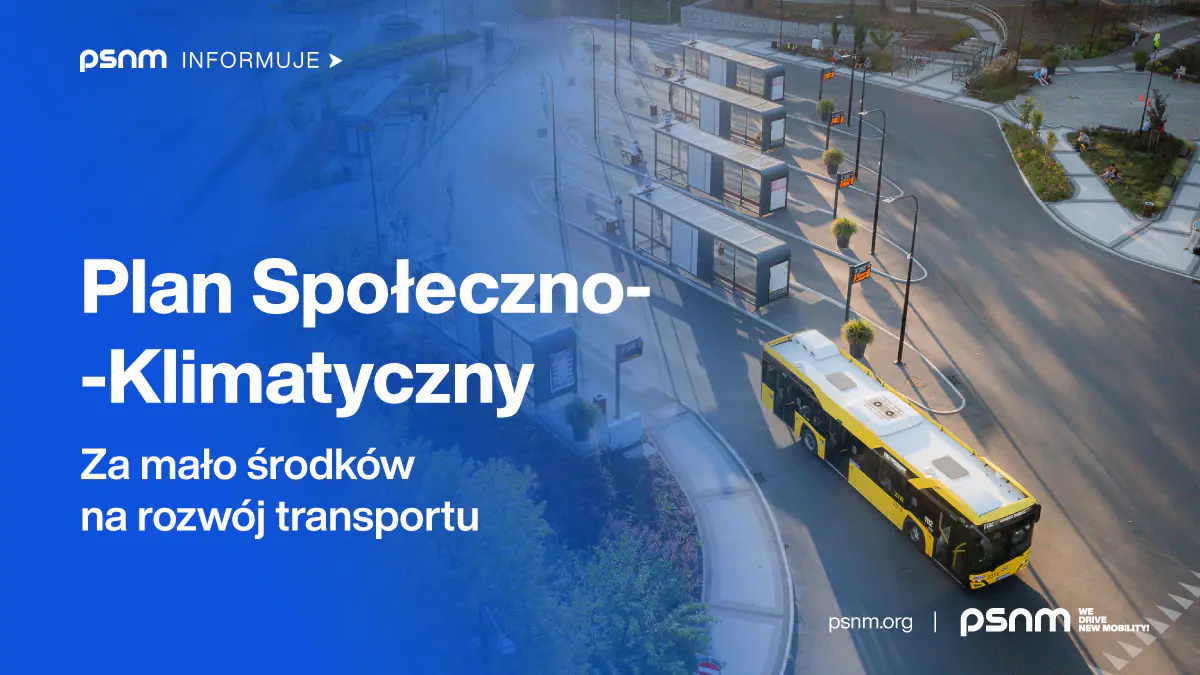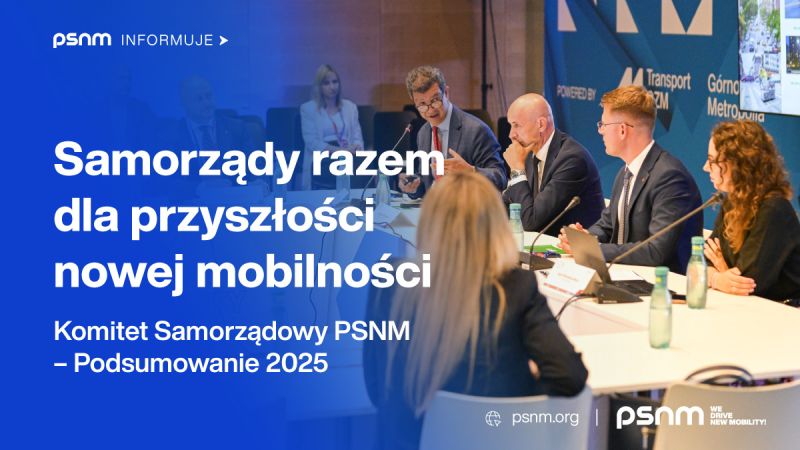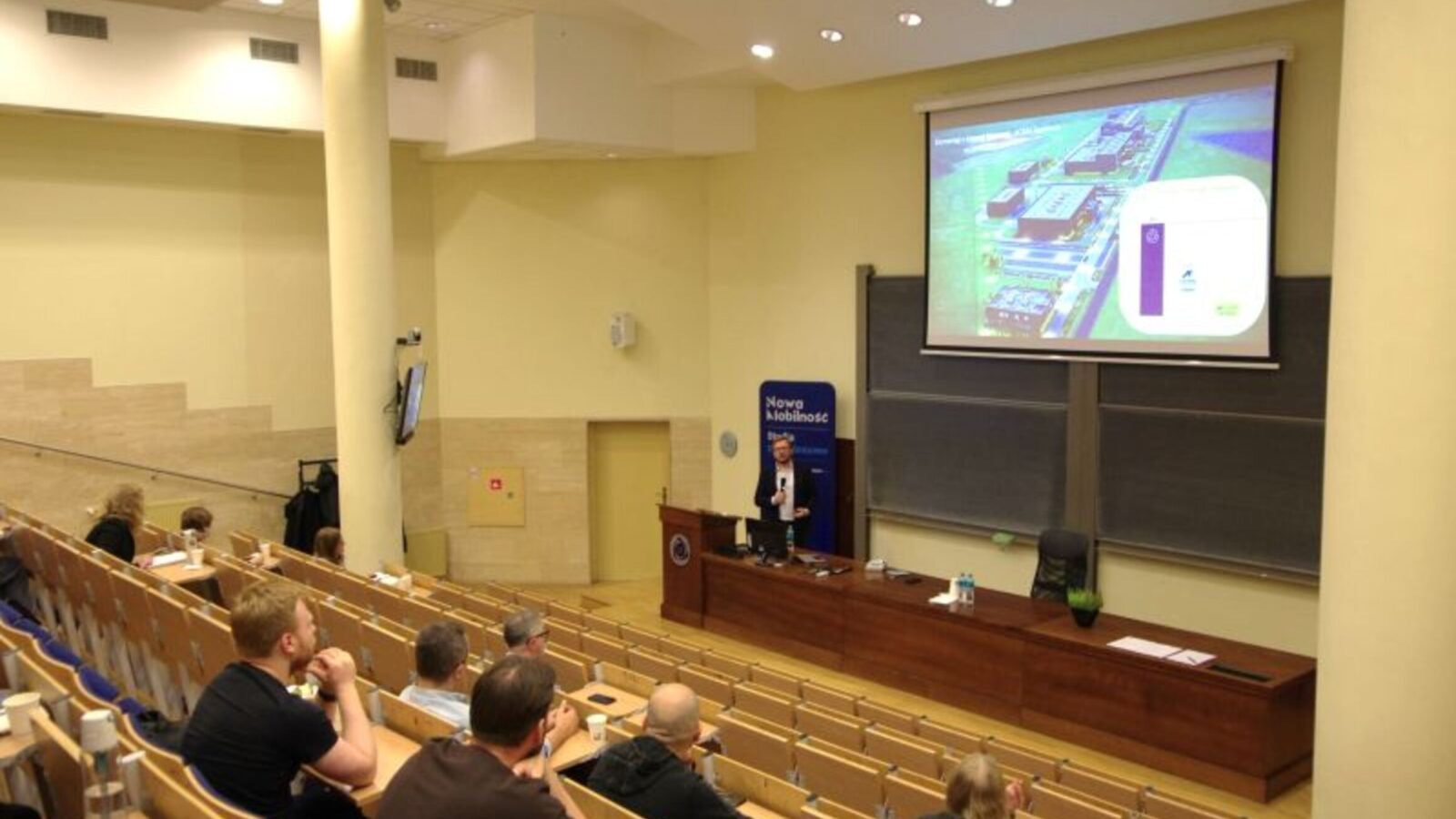- The Polish New Mobility Association (PSNM) has submitted a series of comments on the government’s draft Socio-Climate Plan (PSK). The PSK determines the direction of spending from the Social Climate Fund, of which Poland is the largest beneficiary in the European Union. As much as PLN 65 billion will be allocated.
- In the government’s PSK draft, only 21% of the budget is allocated to the transport sector—46% less than for the building sector—even though transport poverty affects up to 15 million Poles.
- One of the main shortcomings of the draft is the lack of consideration for a social leasing program for zero-emission cars, which has been successfully implemented, among others, in France. The government’s proposal marginalizes individual transport, even though it emphasizes its key role in combating transport exclusion.
- The industry also points out that the proposed support for buses powered by compressed natural gas (CNG) threatens the plan’s acceptance by the European Commission—funding technologies based on fossil fuels contradicts the DNSH (Do No Significant Harm) principle.
The European Union is preparing to introduce a new system for trading greenhouse gas emission allowances (ETS2). The implementation of ETS2 may lead to higher costs for transport based on internal combustion engine vehicles and increase transport poverty. To mitigate the negative consequences of ETS2, the Social Climate Fund (SFK) was established, with its resources to be allocated based on national Socio-Climate Plans (PSK). Poland will be the largest beneficiary of the SFK among EU member states—the Plan’s budget for 2026–2032 amounts to PLN 65 billion. The Ministry of Funds and Regional Policy has submitted the draft Polish PSK for public consultation. After a preliminary analysis, PSNM highlights significant shortcomings in the draft, which may considerably limit the effectiveness of measures to combat transport poverty.
– The government’s draft Socio-Climate Plan allocates only €3.2 billion to co-finance the road transport sector, which constitutes merely 21% of the total program budget. This is 46% less than the amount reserved for the building sector. Such a disproportion is incomprehensible, especially in light of the serious challenges related to limited access to public transport in Poland. We are talking about a problem that, according to UNICEF estimates, potentially affects up to 15 million Poles – notes Jan Wiśniewski, Director of the PSNM Research and Analysis Center.
Supporting yesterday’s technology instead of tomorrow’s
Particular concerns arise from the proposal to subsidize low-emission buses powered by natural gas (CNG), which contradicts EU climate goals that aim for a 90% reduction in transport emissions by 2050.
– Continuing to include low-emission bus purchases in the PSK could lead to the rejection of the plan by the European Commission due to its inconsistency with the DNSH (Do No Significant Harm) principle. It is a waste of funds on technologies that are already outdated today – warns Marek Popiołek, PSNM Director of Business Development.
Failure to address transport poverty
The PSK draft provides virtually no support for individual road transport, even though the government acknowledges that rising fuel prices resulting from the ETS2 system will have the greatest impact on communities in transport-poor areas, where lower-income users will not be able to access public transport as an alternative if forced to forego purchasing more expensive fuel.
– Individual road transport is, in many cases, the only viable solution to combat transport poverty, especially in regions where providing access to public transport is impossible or economically unfeasible. That is why we call for the introduction of a social leasing program for electric vehicles, following the example of solutions implemented in France – adds Jan Wiśniewski.
PSNM’s recommendations
The new mobility sector calls for a significant increase in the budget allocated to the road transport sector and the withdrawal of support for low-emission buses powered by fossil fuels. PSNM also advocates support for shared mobility and on-demand transport. In addition, support for the expansion of charging infrastructure in municipalities with fewer than 50,000 residents, as well as increased funding for micromobility and pedestrian/bicycle transport, is essential.
– The current PSK draft does not address the real needs of Poles threatened by transport exclusion. Without decisive changes, the plan may prove ineffective in combating transport poverty – concludes Marek Popiołek.



